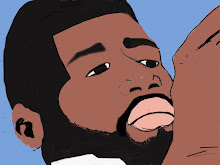Don't be sore. It is what it is.
Technically,
race is just a human construct. The sooner you understand that, the
better. The following slang terms refer to "american" white
folks. (This article is for education and information purposes.)
"Honky"
The slang
term honky was derived from “hunky” which is short for
“Bo-Hunk”; someone who was of Bohemian/Hungarian descent. As in
most places in the world, a subtle difference in pronunciation was
misheard and therefore caused the term itself to evolve. (I.e. just
as someone from South Carolina may pronounce Barry Bonds as “Barry
Bunds”) Bo-Hunks or Hunky’s were primarily migratory unskilled
or semi-skilled laborers. Their general isolation allowed them
to preserve some aspects of their native European Culture. In the
years following the civil war they lead the westward expansion in
search of more stable and permanent work opportunities and a
homestead. The term “honky-tonk” was another name for
“juke-joint”, an adult saloon or speakeasy in which a crude type
of piano called a “tonk” was played in a rhythmic percussive
style.
"Cracker"
Contrary
to popular belief and opinion, this origin is actually quite simple.
Cracker is short for “Corn-Cracker” or Cornhusker. (i.e. Jimmy
Crack Corn, Crackin’ Good Winn Dixie brand, etc.) It was a term
given to day laborers by the more aristocratic Anglo-Caucasian
gentry in the 19th century. It was not used in a pejorative
sense until large cities began to emerge west of the Rockies in
which working class Caucasians had to compete with other ethnicities
to get work. In addition, the term was most utilized by Negroes in
the Northern Midwest who emigrated there after WWI in large numbers
to escape the Jim Crow laws of the south.
"Ofay"
This one
is very interesting. For some reason, all the dictionaries list it
as a derogatory term for a white person, but no one seems to know
why. I agree with some scholars that the word has African origin,
but I don’t think it means simply “white” (even if it did,
that in itself is not derogatory at all. It’s a literal
description.)
It could
have evolved from the African word “Afia” which means light
colored, but I think it’s deeper than that. At the turn of the
century the word was being used as the flip-side of minstrel
blackface – in other words some black minstrels would generally
put on white makeup to perform. In that sense I think the word would
not only allude to Caucasians, but also a sort of parody of them as
well.
"Peckerwood"
This term
was conceived entirely by wealthy and upper middle class Caucasians,
especially those who considered themselves “the new gentry” to
describe low-income working class
whites. Ironically it was most commonly used toward former neighbors
or distant relatives, as they were often seen as a negative
reflection on middle class whites, just as the term “white trash”
is used today. The term is a play on words derived from
the woodpecker bird, which was seen as unnecessarily
annoying. The word is also sometimes shortened to “wood”
when used in reference to a gang members or in the prison system.
"Redneck"
This one
is something I like to call a “linguistic anomaly”. I disagree
with most historians’ acceptance of the 20th century
disambiguation that it was simply another term for poor whites,
generally farmers. In my opinion, when the original definition of a
term no longer meets the criteria according to the majority, the
majority simply changes the definition to something else entirely.
Originally in Scotland the “Covenanters” wore red scarves and
neckerchiefs in defiance of the rule by the bishops. They were
called “rednecks” by the Scottish aristocracy. Many covenanters
settled in the Southern US and were eventually called Presbyterians.
The areas they settled were predominantly agricultural. This was the
basis for the redneck/farmer correlation.
"HillBilly"
This one
is fairly simple yet very interesting. Lowland Scots, known as
Ulster Scots were Protestants who later became known as
Scotch-Irish. Two old Scottish phrases were combined in “hill-folk
or hill-fellow” and “billie” another word for fellow or
“bloke”. In fact, the original spelling was “hill-billie”
sometimes used without the hyphen. Even today, it is not always used
derogatorily. Many local festivals and awards are given in
association with the word Hillbilly.
"Okie"
This is
the name given by White (and sometimes Jewish) Californian
industrialists to the pre-WWII west-coast emigrants to from Oklahoma
and Arkansas, who were mostly poor white farmers. The largest
emigration took place during the great depression and the "dust
bowl". However, between 1907 and 1917 many “okies” of
Scotch-Irish descent came west to organize in labor unions and
eventually in the 1930’s they were instrumental in creating
socialist political parties. This reason more than any other drew a
high level of contempt from wealthy Californian whites.
There are other slang terms I left out of this article, such as hick, hayseed, bumpkin and yokel; which all generally refer to rural folk, usually farmers and generally poor, but not to one ethnicity in particular. In addition, all of the above terms are from post-colonial north america. Prior to that, all indigenous equatorial people of color simply referred to Europeans as "white" descriptively; "nyeupe" or "kook" short for "miguk" etc.
Goodnight
everybody. Drive home in reverse.
Skip Pulley
Editor in
Chief






Comments
Post a Comment